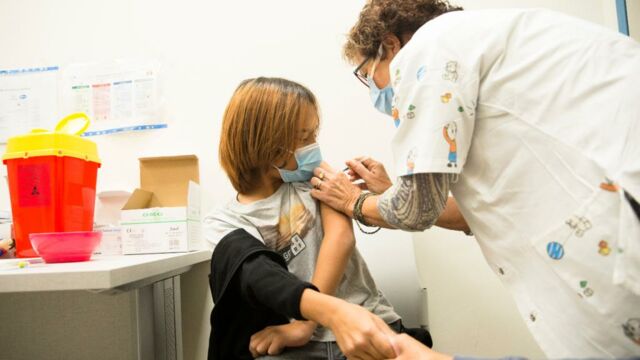National Geographic was granted exclusive access to the findings of Icelandic research, which answershow much children contribute to the spread of coronavirus.
Discover our latest podcast
According to the 40,000-person study, two key factors were disclosed. The first component concluded that the children under the age of 15 were only half as likely to become infected as adults, and only half as likely to spread the virus to others. And the transmission of COVID to children were primarily from their parents.
The good
The data above reveals that, even though children are generally less vulnerable when hit by an outbreak, the risk increases when they go to school and mingle with their peers.
The chief executive of deCODE, Kári Stefánsson, said:
They (children) can and do get infected and transmit to others, but they do both less frequently than adults.
In addition to the Iceland research, the findings published in Science have revealed that prepubescent children are less susceptible to catching COVID. Thus, between the ages of 10 and 12, a key transition occurs and post-puberty the child is at a higher risk of being immunocompromised.
AlasdairMunro, a clinical research fellow in paediatric infectious diseases at University Hospital, Southampton, added:
Transmission will occur in schools, just as it will anywhere that people mix. But children aren’t the drivers of disease.
The bad
However, the Delta variant has increased the COVID cases of children under the age of 10. The surge in paediatric cases requires immediate hospitalisation. But, in extremely rare situations, the child might additionally develop severe lung complications and pass away.
Aaron Milstone, M.D., M.H.S., a paediatrician at Johns Hopkins Children’s Center advised:
Indoor activities are riskier than outdoor activities, but risk can be reduced by masking, distancing, handwashing, and improved ventilation.
In the case of a newborn, an infected mother may pass the infection to her baby. The infant will be infected shortly after being born. To avoid such situations altogether, pregnant women should take extra measures, including talking to their doctor about getting the booster shot.
The ugly
According to the John Hopkins’ hospital, COVID-19 symptoms for children and adults include:
- Cough
- Fever or chills
- Shortness of breath or difficulty breathing
- Muscle or body aches
- Sore throat
- New loss of taste or smell
- Diarrhoea
- Headache
- New fatigue
- Nausea or vomiting
- Congestion or runny nose
But, sometimes the above symptoms persist and the health of the child deteriorates. You can identify it and call for immediate medical care, if:
- Difficulty breathing or catching his or her breath
- Inability to keep down any liquids
- New confusion or inability to awaken
- Bluish lips















